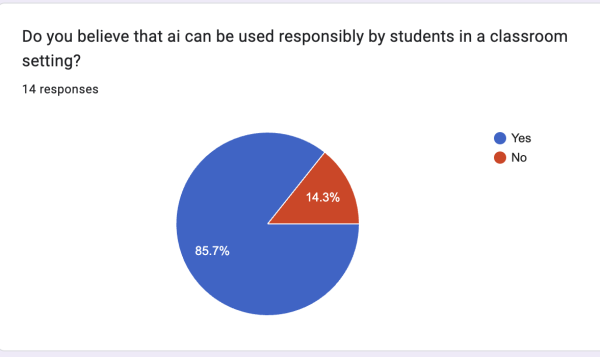Biden to Face Difficult Foreign Affairs Challenges
In the past year, America has been forced to grapple with a number of difficult and converging domestic issues. The pandemic, racial injustice, and the economy are centered in most discussions as they are at the forefront of people’s minds. With so many current challenges at home, it can be easy to forget about what’s going on abroad. However, during his first term President Joe Biden will be forced to confront challenging foreign policy as well as domestic matters. The global challenges America has struggled with in the past have not disappeared, and many have escalated.
Russia
Perhaps the most concerning topic regarding Russia is cybersecurity. A recent hack into the network management software company SolarWinds, most likely by Russia’s foreign intelligence service, allowed hackers to spend nine months in U.S. government networks unnoticed. Nobody is exactly sure what the objectives of the attack were, which makes it all the more concerning. Russia has perhaps the most sophisticated cyber intelligence operations in the world, and more attacks are sure to come.
Russia’s human rights violations create a policy challenge for Biden as well. Alexei Navalny, an opposition leader and critic of Vladimir Putin who was poisoned (most likely by Russia’s secret service) last August, recently returned to Russia after being treated in Germany. He was immediately taken into custody and ordered to serve a three and a half year prison sentence for parole violations. Navalny’s treatment has sparked widespread protests against Putin, and thousands of demonstrators have been arrested.
Biden has criticized Russia for Navalny’s imprisonment and called for his release. However, he walks a difficult line regarding punishment, as Russia has said it will retaliate if sanctions are imposed. Angela Stent, a foreign policy expert at Georgetown University, said she thinks the U.S. is limited in what it can do to change what’s happening inside Russia.
Despite this, there is hope for cooperation in at least some respects. On Feb. 3, the U.S. and Russia extended the New Strategic Arms Reduction Treaty, a key nuclear arms treaty limiting warheads and restricting competition between the two nations. However, Biden’s relationship with Russia will be nowhere near as friendly as former president Donald Trump’s was, and he will likely take stronger action to hold the nation accountable.
North Korea
Tensions between the U.S. and North Korea remain high. In early January, North Korean leaders held a party congress in which Kim Jong-un named the U.S. as their primary enemy. The congress also set goals for modernizing certain weapons systems and expanding their nuclear arsenal.
Trump’s dismissiveness of North Korea’s nuclear capabilities have given them time to further develop weapons, some of which are capable of reaching the U.S. In October, a 75-foot missile made an appearance in a parade. That weapon and others like it will probably be tested in the near future.
Kim’s remarks at the congress are a sign that North Korea will continue to use nuclear weapons to deter what it considers aggression from the U.S. However, the leaders also said they are not ruling out negotiations, as long as the U.S. abandons its “hostile policy.”
Biden has said he will not negotiate with Kim directly unless he agrees to begin denuclearization. Instead, he will communicate with Kim’s advisors. North Korea will be less willing to cooperate with the Biden administration than they were with Trump, so Biden will need to decide how far he wants to push.
Syria
March 2021 will mark the 10th anniversary of the start of Syria’s long, bloody, and complicated civil war. The fighting has largely come to an end, although some violence remains. Just last week, dozens of people were killed in several car bomb attacks. At the moment, most of Syria, and all its major cities, are controlled by President Bashir al-Assad. The country is also facing an economic crisis due to inflation and COVID-19 lockdowns.
Syria is currently in the process of constitutional talks, a process that began two years ago. The talks aim to reform the constitution, the first step under a UN Security Council mandate that calls for an end to fighting and UN supervised elections. Although nobody involved expected a peace agreement, the talks have dragged on far longer than expected. The fifth round of talks recently ended without any major progress.
Syria’s UN Special Envoy, Geir Pedersen, said the stall in progress was due to a lack of engagement from the Syrian government’s delegation. The next Syrian elections are set for mid-April, and many suspect that Assad wants to delay the new constitution long enough that the election remains unsupervised. Unless an agreement is somehow reached, Syria will remain in political and economic crisis.
Biden recently extended Temporary Protection Status (TPS) to thousands of Syrian immigrants living in the U.S., preventing them from deportation for another year and a half. On his website, Biden claims he will “use what leverage we have in the region to help shape a political settlement to give more Syrians a voice.” Despite this, Syria will likely not be a priority for Biden.
Myanmar
A military coup in Myanmar is another foreign policy challenge for Biden. Myanmar, a nation of 53 million people which borders both China and India, had been transitioning away from military rule, but is now once again under the control of the armed forces, which declared a one-year state of emergency on Feb. 1.
The military has a large role in Myanmar’s history, as they ruled the country for nearly 50 years. In 2011, a new government began transitioning to a more democratic rule, changes largely brought on by Aung San Suu Kyi, a leader of the National League for Democracy party. The NLD took 83% of the vote in the last election, but the military, who backs the opposition party, claimed voter fraud had taken place and called for investigations.
Hours before the parliament was set to begin its new session, the military staged a coup. Suu Kyi and other NLD leaders were arrested, the internet became inaccessible, and news channels were replaced by military propaganda. Thousands of protestors have taken to the streets, fearful of another long military dictatorship. In a few hours, the military may have reversed much of the democratic progress made in the past decade.
President Biden released a statement saying he would be considering imposing sanctions on Myanmar. He also called on other countries to pressure the military into returning power to the NLD. Although the recognition of human rights abuses is a welcome change from the Trump administration, it will be difficult for Biden to actually effect real change. Sanctions may help punish the military, but some experts warn it may also make Myanmar more dependent on China and ultimately hurt America’s influence in the region.
China
Biden has made it clear that his administration will reclaim America’s “moral authority” in the world by “standing up for democracy and human rights around the world.” When it comes to China, Biden will make significant changes to Trump’s trade policy, but his focus should be equally centered on humanitarian issues, as China is committing some of the world’s worst human rights abuses.
The Uighur people, a Muslim ethnic minority in northwestern China, have long been subject to discrimination, but it has intensified in the last decade, transforming into something eerily similar to the Holocaust. Satellite imagery, witness accounts, and leaked Chinese Communist Party documents have revealed the existence of enormous internment camps the Chinese government is using to detain and indoctrinate Uighurs against their will.
Reports have also revealed that Uighurs are being used for forced labor. An Australian think tank estimated that in 2 years, more than 80,000 Uighurs were “transferred out of Xinjiang to work in factories across China.” And that was a conservative estimate. Foreign companies, some of them American, have been benefiting from this forced labor. Coca-Cola, Adidas, Nike, and many other large U.S. companies have been linked to Uighur labor. A report from the Washington Post found that Uighur workers at a Nike factory were forced to take Mandarin classes and live under constant supervision, although Nike denied this.
In recent months, there has finally been some recognition of the severity of the situation. A recent legal opinion commissioned by the Global Legal Action Network and published in the UK concluded there is sufficient evidence that the government is attempting to destroy the ethnic minority. This was the first formal legal assessment of China’s actions from the UK and might lead to some sort of governmental action. And the day before Biden’s inauguration, Secretary of State Mike Pompeo called the Chinese government’s actions “genocide.”
Biden’s Secretary of State has agreed with this designation, and Biden has claimed he will stand up against China’s human rights abuses. As president, Biden could allow more Uighurs to seek asylum in the U.S., push for congressional legislation that bans U.S. companies from using forced labor in Xinjiang, and expand sanctions. We’ll have to wait and see if his actions are as strong as his words.

Hello! I'm a Senior at Hellgate and this is my second year writing for the Lance. In addition to writing, I enjoy mountain biking, playing cello, and competing...




